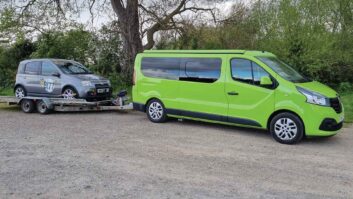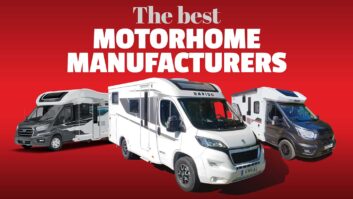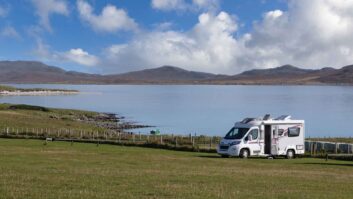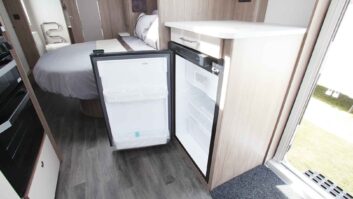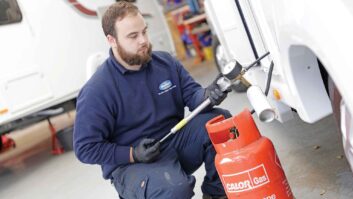[tl:gallery index=0 size=103×155]Our Gentleman Jack Bancroft is an irredeemable motorcaravaning enthusiast. His family have been camping, caravanning and motorcaravanning since 1928. Jack and his wife Flora are now on their tenth motorhome, a 2003 Auto-Sleeper Pollensa on a Ford Transit base. They have toured extensively at home and abroad, including a period of full-timing. Here, Jack answers your motorcaravanning queries:
Q: We want to change my wife’s Polo 1.4-litre automatic for a small car suitable to tow behind our Auto-Trail Apache. If possible, we would like an automatic in the lower tax range. What do you suggest?
John Temple
West Midlands
A: I assume that you are veering towards using an ‘A’-frame, so you must make sure that any car purchased can actually be towed with all four wheels down (sometimes called ‘flat towing’). In the past, the manufacturers of some popular small automatic cars, such as the Smart, strongly advised against towing in this manner, claiming it will damage the gearbox. This is hotly denied by some readers who say they do just that without (apparently) damaging anything! (In fact, one of the companies listed below specialises in towing frames for Smart cars.)
Ensure that the combined weight of your intended car (plus trailer if applicable) and motorhome does not exceed the motorhome’s Gross Train Weight. On motorhomes this can be found on an information plate which is usually under the bonnet or in a cab door jamb. Don’t forget that a towbar will add to the motorhome’s unladen weight and will commensurately reduce the available payload.
If you decide to use a trailer, then any small automatic would be suitable. My personal favourite at the moment is the Fiat Fiorino Combi with Comfortmatic Transmission. Unlike all micro-cars, quadricycles and Smart cars, it’s a ‘proper’ five-door four-seater mini-MPV and is equally suitable for urban jousting and long distance press-on miles, but it lacks the fun factor of the others.
Points to ponder
(1) Consider whether you really need to tow a car. By doing so, the motorhome will use more fuel and you will be charged more on ferries, toll bridges, toll motorways, and on some campsites. Another solution would be to hire a car locally on the odd occasion one is needed. Some of my pals who spend the winter in Spain or Portugal favour this arrangement. Local car hire can be surprisingly cheap for ‘off-peak walk-in’ customers (ie, who haven’t booked in advance).
(2) Choose between a trailer or an ‘A’-frame.
(3) Do not buy anything without both of you having a meaningful test drive.
(4) If the car manufacturer advises against towing with all four wheels down, then by doing so you will void your warranty.
(5) Ask ‘A’-frame manufacturers (see below) which small automatic car is the most suitable.
(6) My own opinion is that towing on an ‘A’-frame is perfectly legal, though many of the combinations I see are not. In the eyes of the law, a car on an A-frame becomes a trailer. If any trailer has brakes, they must work. This has nothing to do with whether the towed car weighs more than 750kg or not. Braking can be achieved by using an overrun system, an electronic one, or by a device such as the Brake Buddy.
(7) By “low tax” I assume you mean cheaper Road Fund Licence (the tax disc). RFL is quite a small proportion of the overall running costs; by far the biggest expense is depreciation.
Contacts
• Bantam Trailers www.bantamtrailers.co.uk; 01296 397 775
• Car-A-Tow www.caratow.com; 01202 632 456
• Smart-Tow www.smart-tow.com; 07950 908 348
• Towbars 2 Towcars www.tow-bars2tow-cars.co.uk; 01469 560 402
• Towtal www.towtal.co.uk; 01782 333 422


